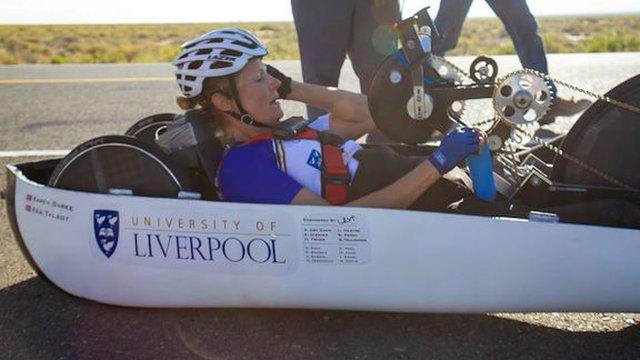Cyclist Neil Campbell has 174mph Guinness World Record confirmed
- Published
Neil Campbell admitted he was "petrified" during his record-breaking feat in August
A cyclist who pedalled at a speed of more than 174mph (280km/h) has finally seen his achievement recognised as a Guinness World Record.
Neil Campbell, 45, an architect from Essex, broke the men's cycling speed record in August along a two-mile (3.2km) airstrip in Yorkshire.
He now has his sights on the overall record of 183.932mph (296.010km/h), held by an American woman.
"I never thought we could achieve it in this country," the pacy pedaller said.
Mr Campbell's team had to formally submit witness statements, media reports and scientific evidence of the feat before it was officially ratified.
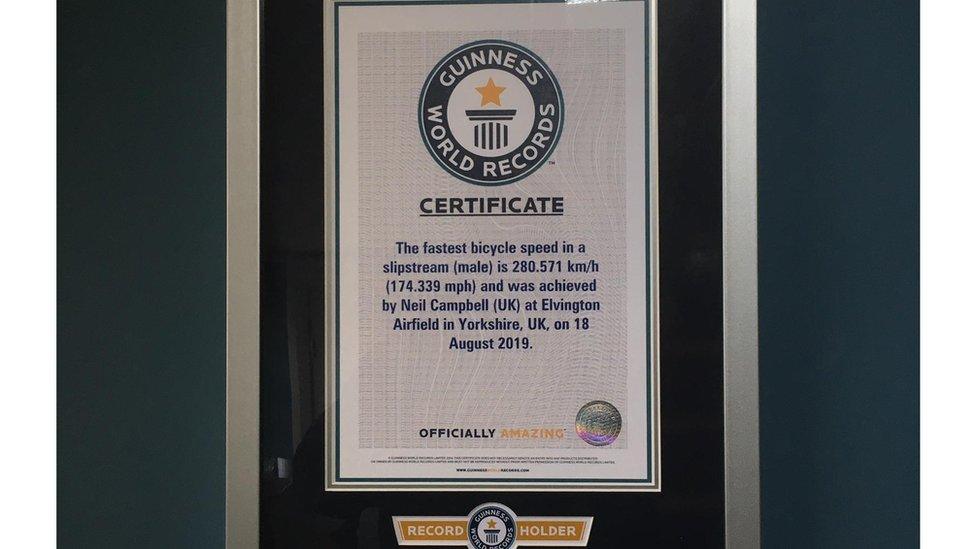
Mr Campbell has been officially recognised as a Guinness World Record holder
He described the news as a "huge relief".
"It's a reassurance - and a recognition for the team who have been working towards this for a very long time," he said.
"But records are made to be broken. I feel quite humbled."
Mr Campbell was pulled along at Elvington Airfield in North Yorkshire by a Porsche Cayenne fitted "with a big Tupperware box on the back", then released to go through the timing gate under his own power.
He admitted the record almost did not happen, after his back wheel locked and he became tangled in the sports car during his penultimate attempt.

An attachment was added to the back of the Porsche to help drag Neil Campbell along the track
The bike - based on a tandem design and using 3D-printed parts - "looks retro but is quite cutting edge," he said.
Every element, from the design of the bike to the specially-designed helmet and "airbag" suit, had to be perfect, he added.
You may also like:
Mr Campbell's speed has been officially recorded as 174.339mph (280.571km/h), breaking the previous speed record of 167mph, set by a Dutch rider in 1995.
He now holds the record for the world's fastest male cyclist in a slipstream.

Neil Campbell, 45, was clocked at 174.339mph on the specially-built bike
The overall world record is held by American Denise Mueller-Korenek, who rode a custom bike at a 183.932mph average, the take-off speed of a large jet.
It was set on a six-mile track at the Bonneville Salt Flats in Utah, in September 2018.
Mr Campbell said he wanted to top 220mph (354km/h) at the same US venue next year.
"The challenge is not just physical," he said, "it's about science, planning and teamwork."
- Published19 August 2019
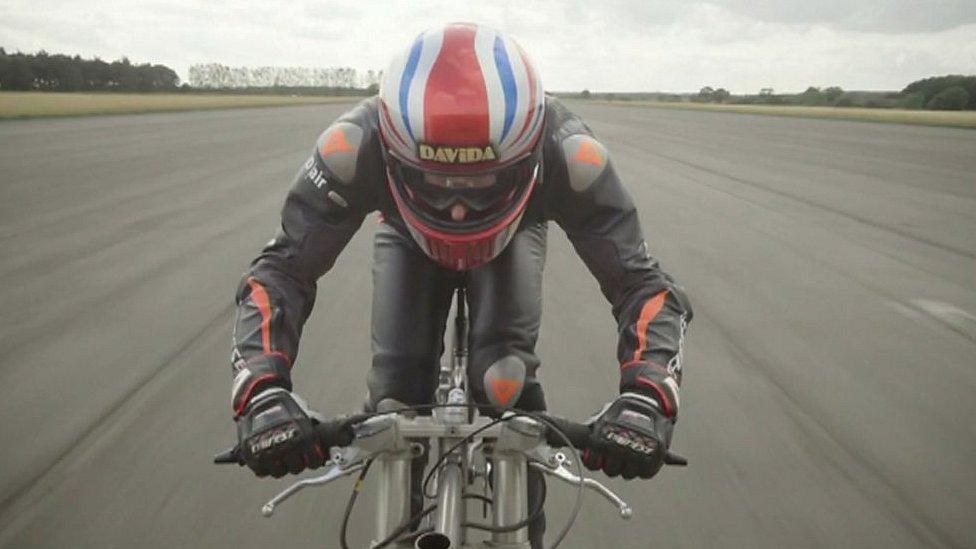
- Published19 September 2018
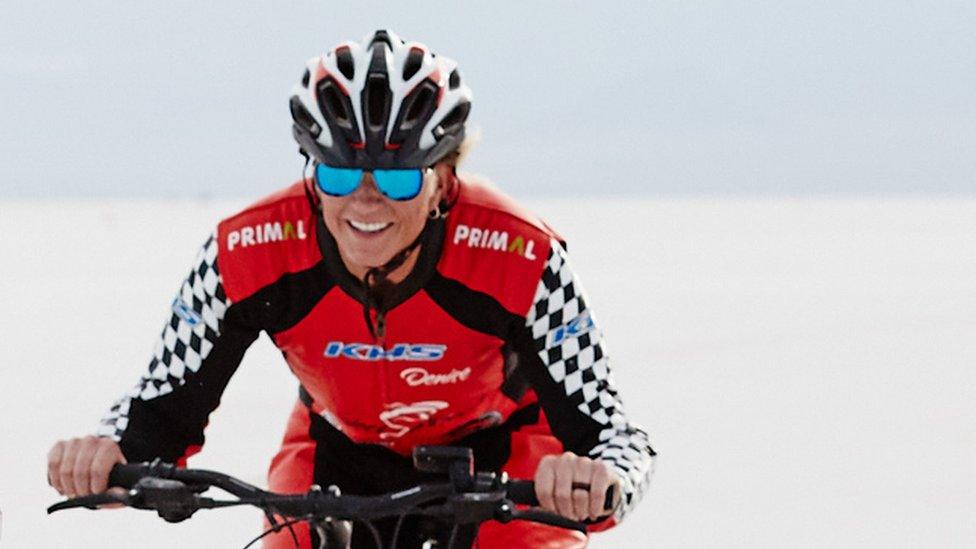
- Published20 June 2018
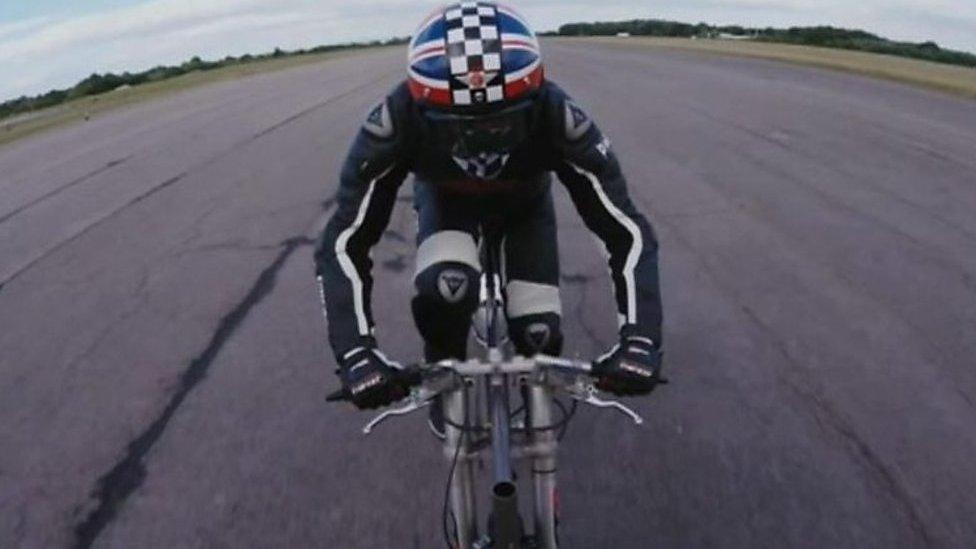
- Published13 September 2018
